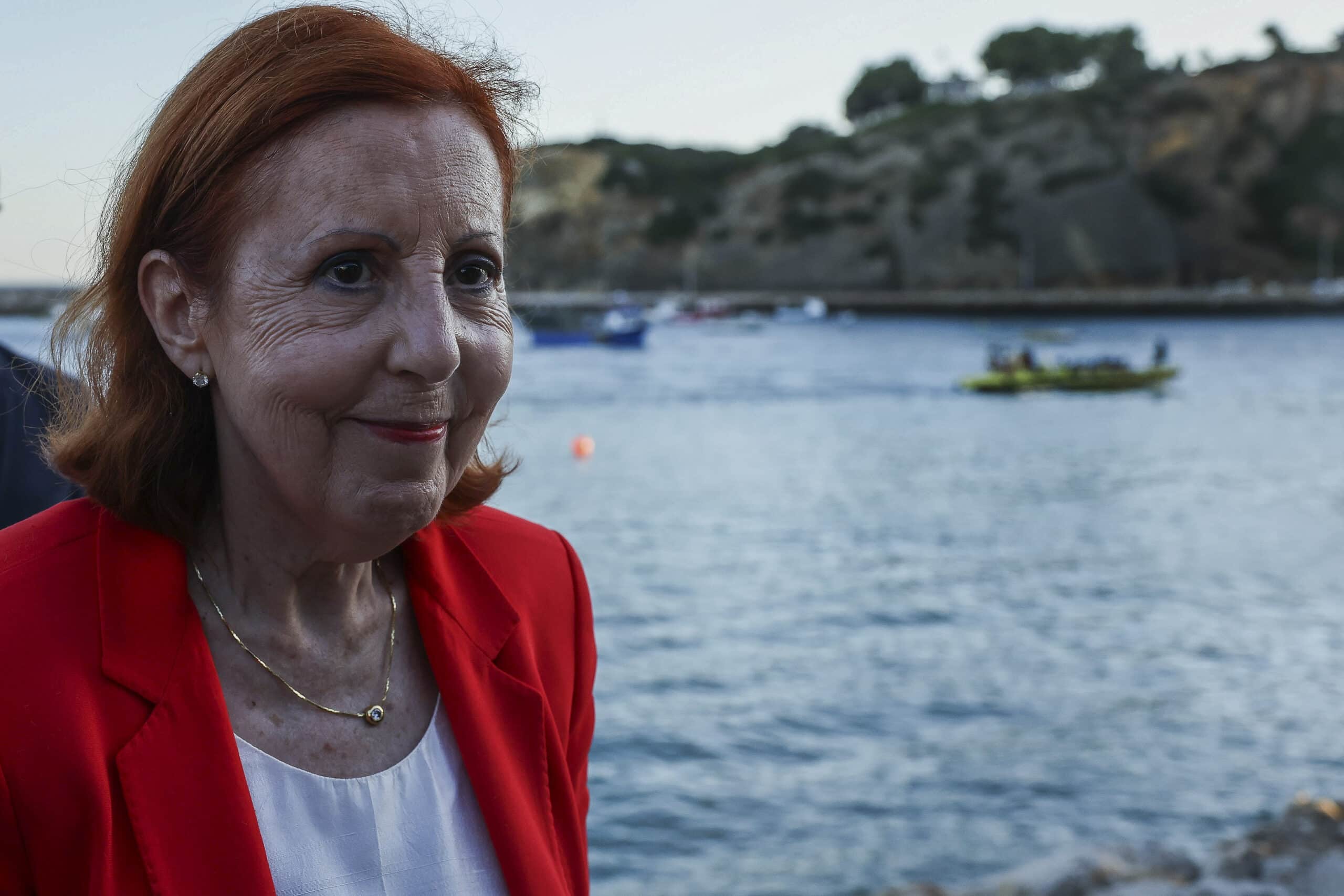This compensation for fishermen is a “first” in Portugal, minister says
Portugal’s minister for the environment has announced €1.2 million in compensation for Algarve fishermen affected by the creation of the Algarve Reef – Pedro do Valado Marine Natural Park.
Maria da Graça Carvalho was in Albufeira on Wednesday to attend the presentation of the marine natural park, an area of nearly 156 square kilometres created off Albufeira, Silves and Lagoa to protect the area’s vibrant marine life – said to include 900 species of fauna and flora, 24 of which have “conservation status”, and 12 species new to science.
Speaking to journalists after the event, the minister stressed that the €1.2 million that will be awarded to fishermen through the Environmental Fund is “already a substantial amount”.
“Today was a very good day, it’s the first time that compensation has been given in Portugal for a natural park, it’s compensation in this case to fishermen for seeing their activity reduced, limited; it’s not forbidden, but limited, because it has some constraints imposed by the ICNF (Institute for Nature Conservation and Forests),” Graça Carvalho told reporters at the end of the ceremony.
The minister for the environment said the Algarve Reef is a “fantastic park, with a very large number of species, species that were unknown”, in an area that has “enormous wealth in this part of the Algarve” and that was the result of a process that “went very well, which was born out of civil society, born in the community“.
The minister highlighted the participation of the mayors of the three local councils involved, “from different political forces, who came together, agreed and had the community and the people with them, and with the fishermen’s associations“, thus leading “an exemplary process” that resulted in the creation of this protected area off the Algarve coast.
Maria da Graça Carvalho recalled that the creation of the park was made in a resolution by the previous government and stressed that the current executive’s action was to “make it a reality” with “an order that was published on Wednesday from the Environmental Fund” and which “gives this compensation to the fishermen of €1.2 million”.
“The form is already on the Environmental Fund’s website so that fishermen who have boats and can prove that they fish in this area can apply,” she said.
The minister stressed that there had been a “large and in-depth study by the University of Algarve and the Oceano Azul Foundation” to identify the criteria for awarding compensation, which depend on aspects such as “the history of fishing in recent years”.
“And so it’s a very successful process in everything, in the connection between public policies and academia and scientific research, involving fishermen, the community and local authorities, an example to be followed,” she pointed out, considering that the work to create the marine park “was an example, pioneering” and should serve “as a model for the next” areas that are classified.
Asked if the construction of a desalination plant in Albufeira – which is once again under scrutiny for the high costs involved – to cope with the drought affecting the Algarve was incompatible with the park, the minister replied that “they are not incompatible projects”.
“The desalination plant is a very important project for the Algarve region,” the minister said, adding that the government has set priorities: “We are acting first in saving water, second in reducing losses, third in reuse and fourth to increase existing infrastructures, but in the case of the Algarve all these measures are still not enough.”
Said the minister, “we have to have new sources of water; that’s why we are taking water from the Guadiana river in Pomarão, and preparing and studying other possible ones,” she argued.
Maria da Graça Carvalho assured that the Pomarão water intake will also be included in an agreement she plans to sign with the Spanish authorities in September, unblocking the possibility of Portugal taking water from this Portuguese-Spanish river to the Odeleite reservoir, in the eastern Algarve.
Source: LUSA




















